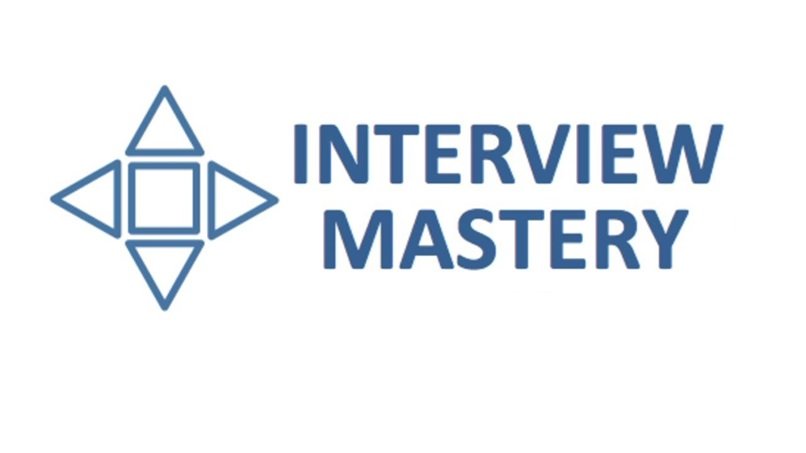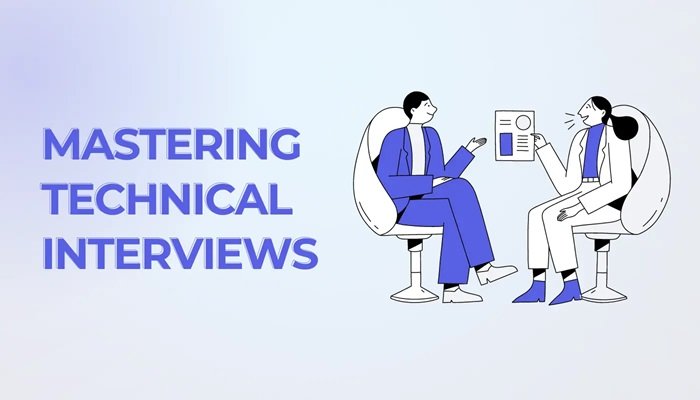Table of Contents
Introduction – Interview Mastery
Building a talented team is essential to any organization’s success in the fast-paced world of the IT industry. Conducting efficient interviews is a talent that, as a prospective technical manager, can have a big impact on the caliber of your team. The goal of this in-depth guide is to give you the knowledge and skills you need to become an expert in IT interviews and find the most qualified applicants for your team.
1. Understanding the Role:
Before diving into the interview process, ensure a clear understanding of the open position. Identify key skills, experience, and cultural fit required for the role. This clarity will guide your questions and evaluation criteria during the interview.
Example 1: If you’re hiring for a backend developer position, understand the importance of specific programming languages, database management, and server-side technologies. Tailor your questions to assess a candidate’s proficiency in these key areas.
Example 2: For a systems architect role, focus on understanding a candidate’s experience in designing scalable and efficient systems. Inquire about their involvement in previous projects that required intricate system architecture planning.
2. Crafting Relevant Questions:
Develop a set of well-thought-out questions that assess both technical skills and problem-solving abilities. Tailor questions to the specific role and industry trends, covering topics such as coding, system architecture, and troubleshooting. Behavioral questions can also provide insights into a candidate’s soft skills and teamwork.
Example 1: Pose a coding challenge that relates directly to the tasks the candidate would perform in the role. For instance, ask them to optimize a given piece of code or solve a real-world problem commonly encountered in your organization.
Example 2: Inquire about a recent industry trend or emerging technology during the interview. This not only assesses a candidate’s knowledge but also demonstrates their ability to stay current in a rapidly evolving IT landscape.
3. Technical Assessments:
Incorporate practical assessments into your interview process. This could include coding exercises, problem-solving scenarios, or system design challenges. These hands-on assessments provide a more accurate measure of a candidate’s capabilities and help in gauging how well they can apply their knowledge in real-world scenarios.
Example 1: Provide a coding exercise that mirrors a common challenge faced by your development team. This could involve troubleshooting, debugging, or optimizing existing code, allowing you to evaluate a candidate’s problem-solving skills in real-time.
Example 2: Present a system design scenario and ask the candidate to outline how they would architect a solution. This practical assessment provides insight into their ability to think critically about complex technical challenges.
4. Behavioral Checks:
Explore a candidate’s past experiences and behavior through targeted questions. Assess how they handled challenges, collaborated with team members, and adapted to changing circumstances. Look for examples that showcase problem-solving skills, leadership qualities, and the ability to work in a team.
Example 1: Ask about a situation where a candidate faced a tight deadline or unexpected issue. Evaluate how they managed the pressure, collaborated with teammates, and ultimately delivered a solution.
Example 2: Inquire about a time when a candidate had to lead a team through a challenging project. Assess their leadership style, communication skills, and ability to motivate and coordinate a group towards a common goal.

5. Effective Communication:
Evaluate a candidate’s communication skills, which are essential in a collaborative IT environment. Ensure they can articulate complex technical concepts in a clear and concise manner. Assess how well they can explain their thought process during problem-solving exercises.
Example 1: During a technical explanation, assess a candidate’s ability to convey complex concepts in simple terms. This skill is crucial for effective collaboration within a team and when explaining technical details to non-technical stakeholders.
Example 2: Pose a hypothetical scenario and ask the candidate to walk you through their problem-solving process step by step. Evaluate how clearly and logically they communicate their thought process.
6. Cultural Fit:
Assessing cultural fit is crucial for team cohesion. Ask questions that delve into a candidate’s work preferences, values, and how well they align with the company’s culture. Evaluate if their working style complements the existing team dynamics.
Example 1: Inquire about a candidate’s preferred work environment and team collaboration style. Assess whether their preferences align with the existing culture of your organization.
Example 2: Ask about a time when a candidate had to adapt to a new team or work on a project with diverse team members. This helps gauge their flexibility and ability to thrive in various team dynamics.
7. Staying Updated on Industry Trends:
The IT industry is dynamic, and staying updated on the latest trends is essential. Ensure your interview questions reflect current technologies and methodologies. This not only tests a candidate’s knowledge but also indicates their commitment to continuous learning.
Example 1: Discuss a recent technological advancement or industry trend and ask the candidate for their opinions and insights. This not only tests their knowledge but also their passion for staying informed in their field.
Example 2: Inquire about any recent certifications, courses, or conferences the candidate has attended to stay updated on industry best practices and emerging technologies.
8. Creating a Positive Candidate Experience:
Remember that candidates are evaluating your company just as much as you are evaluating them. Provide a positive and respectful interview experience. Clearly communicate the expectations, process, and next steps. Timely and constructive feedback also contributes to a positive candidate experience.
Example 1: Clearly communicate the interview process to candidates, providing an overview of what to expect in each stage. Transparency helps create a positive and stress-free experience.
Example 2: Offer constructive feedback, even if the candidate is not selected. This helps them understand areas for improvement and leaves a positive impression of your organization.
9. Collaboration with Colleagues:
If possible, involve team members in the interview process. This provides diverse perspectives and ensures that candidates are a good fit for the entire team. Encourage open communication among interviewers to gather comprehensive feedback.
Example 1: Involve team members in a technical assessment or code review during the interview. This allows you to observe how well the candidate collaborates with potential future colleagues.
Example 2: After the interview, gather feedback from team members and discuss the candidate’s potential fit within the existing team dynamics. This collaborative approach ensures a well-rounded evaluation.
10. Continuous Improvement:
After each interview, reflect on the process and seek feedback from your team. Assess what worked well and identify areas for improvement. Continuous refinement of your interview techniques will contribute to a more effective hiring process over time.
Example 1: After each interview, assess the effectiveness of your questions and the overall process. Solicit feedback from the interview panel to identify areas for improvement.
Example 2: Keep abreast of changes in the industry and update your interview techniques accordingly. Consider adopting new tools or methodologies to enhance the efficiency and accuracy of your assessments.

Conclusion – Interview Mastery
In conclusion, It takes a combination of technical proficiency, strong communication skills, and in-depth knowledge of the position and market trends to become an IT interview master. By adhering to this thorough guide, you will be well-prepared to find and hire exceptional candidates for your IT team, enhancing the productivity and creativity of your company.
Happy Interviewing !!




1 Pingback